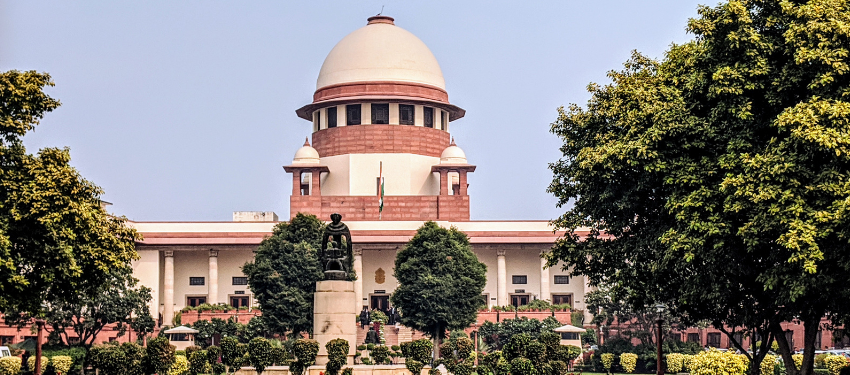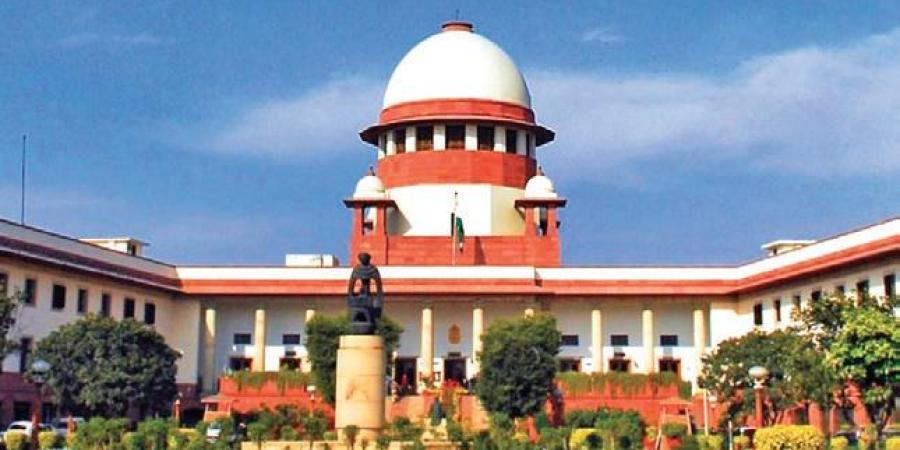
Supreme Court Rejects Liability order against Railways for Theft on Trains
Supreme Court Rejects Liability order against Railways for Theft on Trains
In a case before the Supreme Court against Railways, it was held that the theft cannot be considered a deficiency in the Railway’s service. The Court ruled that if a passenger is unable to protect their belongings, the Railways cannot be held responsible. However, it does not necessarily mean that Railways are exempt from responsibility in all theft cases. This ruling sets a precedent, but each future case will be assessed independently based on its specific circumstances and evidence.
Dr Prem Lata, Legal Head VOICE
Case Title: Station Superintendent &Others V/S Surender Bhola, Civil Appel No 7116 of 2017 decided on 15.6.2023.
On 15th June 2023, the Supreme Court found merit in the Railway’s arguments that they were not accountable for the theft of Rs. one lakh belonging to Surender Bhola, the consumer who had filed a complaint before consumer commission. The complainant stated that the cash was in a belt tied around his waist and was stolen while he was travelling on the train. The District Consumer Forum had initially ruled in favour of the complainant, awarding him one lakh rupees, and this decision was upheld by both the State and National Commission.
However, despite the decisions in favour of the complainant at lower levels, no one represented the complainant’s case before the Supreme Court for six years. As a result, the Supreme Court held that Railways cannot be held responsible for the theft.
Law on the point
Each case is unique, with its own set of facts and circumstances, and any court decision is contingent upon these specific details and the relevant laws. Past judgments from the Supreme Court cannot be universally applied as precedents for all cases, as the circumstances in each case may vary significantly. The previous rulings related to the deficiency of service by the Railway have established the following principles so far –
- Facts must be established –theft, defective meal, bad condition of toilets or beds etc. or any other services.
- Prove negligence on the part of railway.
- Quantum and consequences of loss, damage and compensation to be proved with cogent evidence.
In the above case, neither the fact of theft could be established, nor was railway proved negligent in any manner.
Earlier decided cases:
- Case title -Union of India and Ors. Vs Sanjiv Dilsukhrai Dave and Anr. on 23 October 2002, (NC)
&
- Deputy Chief Commercial Manager, Eastern Railways and Anr. v. Dr. K.K. Sharma and Ors., [200 (III) CPJ page 1 (NC)].
In both the aforementioned cases, Railways cited their respective rules as references or points of contention.
- The jurisdiction to handle railway-related issues lies with the Railway Claims Tribunal, which is a State subject, as stated in Article 12 of the Directive Principles of State Policy. Consumer courts do not have authority in such matters.
- Section 13 addresses any railway administration’s faults, and when combined with Section 15, it establishes that no other court shall handle cases related to Section 13 as railways have their own compensation system. This primarily pertains to cases involving freight, luggage, animals, and booked luggage.
- The passenger is to take care of his own luggage and articles in accordance with Rule 506.2 of Indian Railway Conference Association (IRCA) No. 24, No. 216.
- The passenger is supposed to declare before the starting station and get any valuable articles insured by paying the necessary charges for the railway administration taking extra precautions as stated that under Rule 1301(I)(IV) of IPCA No. 24.
Held-
- Sections 13 and 15 of the Railway Claims Tribunal Act, 1987 did not take away the jurisdiction of the consumer commissions to decide the question of deficiency of service.
- It provides an additional remedy to a consumer. These sections bar civil court but not consumer commissions.
- Circular dated 11.9.1998, Govt. of India, Ministry of Railway published some of the important duties.
Duties of TTE for Sleeper Coaches
- He shall check the tickets of the passengers in the coach, guide them to their berth/seats and prevent unauthorised persons from the coach. He shall ensure that persons holding platform tickets, who came to see off or receive passengers do not enter the coach.
- He shall inspect the passengers’ tickets while the train is in motion and present them as needed.
- He shall ensure that the end doors of vestibule trains are kept locked between 22:00 and 6:00 hrs to prevent outsiders entering the coach.
- He shall remain vigilant particularly during nighttime and ensure that intruders, beggars, hawkers and unauthorised persons do not enter the coach.
- Sumatidevi M. Dhanwatay Respondent: Union of India And Ors.
Date Of Judgment: 06/04/2004(SC)
Factual story: On 4th December 1991, a consumer boarded a 1st Class Air-conditioned berth on the Howrah-Bombay Mail train from Nagpur to Bombay. Her luggage contained valuable items, including gold, pearl, silver, diamond jewellery, and other valuables, amounting to a total value of Rs. 1,11,756. During her journey, she was assaulted by unauthorized passengers, who forcibly took away her gold, silver, pearl, diamond, and other valuable possessions.
Numerous individuals entered the compartment and caused extensive damage, breaking doors, window bars, glass panels, seating berths, and toilets. In response to the incident, the appellant pulled the alarm chain three times, leading to the train stopping at Igatpuri Station. There, she, along with other legitimate passengers, disembarked. She sought assistance and protection from the Railway Authorities but did not receive any help.
After arriving in Bombay, she lodged a complaint with the police concerning the entire incident. Following the complaint, the Maharashtra State Commission partially allowed the appellant’s claim and awarded a total compensation of Rs. 1,41,756. Subsequently, the Railway administration filed an appeal before the National Consumer Disputes Redressal Commission, arguing that they were helpless when an unruly mob entered the railway compartment and caused harm to the passengers and their property.
National commission reversed the order. SC observed-
“Railway administration failed to take precaution and preventive measures. The appellant suffered injury and no protection or support was given to her. The total absence of any steps having taken by the concerned Railway Administration to mobilise adequate police force sufficiently beforehand when the occurrences of such mob-violence by ticketless travellers on stations enroute Nagpur to Bombay were to their prior knowledge”.
The above judgments make two things evident. To hold the Railways liable, both the theft and negligence on their part must be proven.


